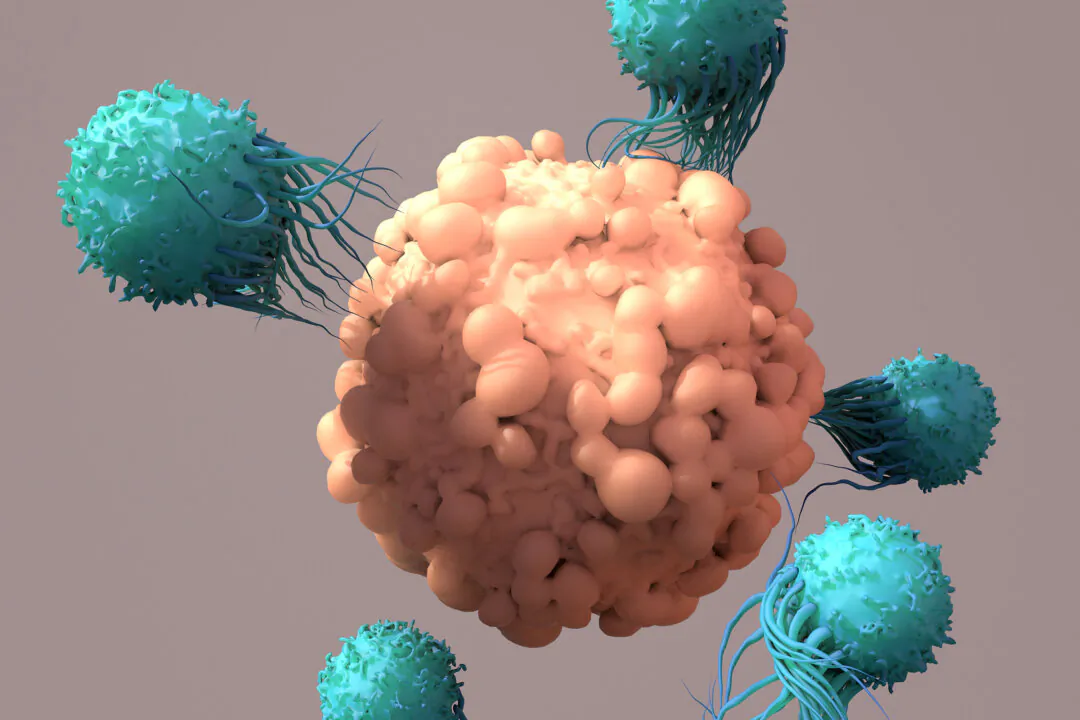The U.S. Food and Drug Administration has issued a ruling requiring manufacturers of certain cancer drugs to add boxed warnings—the agency’s most serious safety label—to labeling, saying they may actually increase the risk of cancer.
The ruling targets makers of specialized therapies called CAR-T immunotherapies that are used to treat certain blood cancers.
Newly Altered Cells May Later Cause Cancer
Boxed warnings signify that a drug carries significant risks of life-threatening or otherwise serious adverse effects.
Specifically, manufacturers developing six CAR-T treatments aimed at the CD19 protein must now include prominent boxed warnings that highlight the risk excessive immune response and neurotoxicity. The ruling applies to several leading CAR-T treatments including: Bristol Myers Squibb’s Breyanzi and Abecma; Johnson & Johnson’s Carvykti; Novartis’ Kymriah; and Gilead’s Tecartus and Yescarta.
CAR-T (chimeric antigen receptor T-cell) therapy uses a patient’s immune T cells to treat certain blood cancers. The T cells are removed from the patient’s body and changed in a lab to attack cancer cells. Then the altered T cells are put back into the patient to fight the cancer.
The mandated boxed warning will explain the potential risk of cancer to users from the medication. The FDA provided sample warning language for manufacturers to include: “T-cell malignancies may occur following treatment with BCMA- and CD19-directed genetically modified autologous T-cell immunotherapies, including…” followed by the product’s name.
Companies must also copy the language under the “secondary malignancies” section of the Warnings and Precautions section of the drug’s label.
This labeling update comes less than two months after the FDA launched an investigation into cases of secondary T-cell cancers among patients receiving CAR-T therapies targeting BCMA (B cell maturation antigen) or CD19. At that time, the FDA designated the cancer risk as “serious” based on reports from clinical trials and post-marketing surveillance.
Manufacturers have 30 days to add the boxed warnings to product labeling, though they can submit a formal rebuttal contesting the requirement.
If companies fail to comply within the timeframe, the FDA warned it may take enforcement actions, including civil monetary fines.
Expert: CAR-T Benefits ‘Far Outweigh’ Risks
The FDA acknowledged cancer risks from CAR-T therapies, but noted that the benefits still outweigh potential harm.
Though pioneered nearly 30 years ago, CAR-T therapies were only approved by the FDA in 2017 for blood cancers like large B-cell lymphoma and multiple myeloma.
The cancer risk stems from the T-cell engineering process. It involves using a viral vector to insert genetic material and create the cancer-detecting receptors. This can potentially trigger mutations and malignancies—a known concern with cell and gene therapies relying on viral vectors.
The therapy is a game changer for treating blood cancers, according to Eric Smith, an oncology researcher at the Dana-Farber Cancer Institute. “Quite often patients who have failed all other therapies get CAR T-cell therapy, and it causes dramatic and durable responses to their cancer,” he told the Harvard Gazette in December.
Out of 35,000 patients getting CAR-T therapy, only 19 developed malignancies, he noted. “Even if all 19 of these patients are somehow directly linked to the CAR T-cell therapy, the benefits will still far outweigh the risks of developing a secondary malignancy,” Smith added.
Nonetheless, the FDA advised lifelong monitoring of all CAR-T therapy patients for potential emerging cancers. It also issued instructions on reporting any cases to manufacturers and collecting patient samples to test for the engineered T-cell genetic markers.



